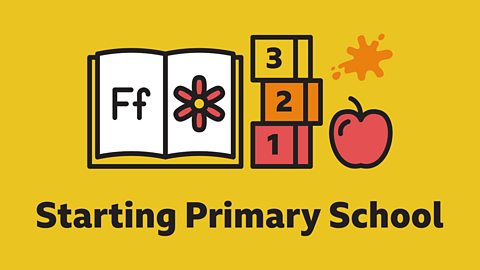This article was first published in October 2019
by Dave McPartlin, headteacher at Flakefleet Primary School

1. How would you describe the feel of the school?
During your visit to the school, think about the words that you would use to describe the atmosphere in the school. Do the staff seem happy, friendly and welcoming? Is there a good ÔÇśfeelÔÇÖ to the school? ItÔÇÖs amazing how accurate your gut feeling can be when forming your initial opinions.
2. When was the last Ofsted inspection and how did the school do?
Ofsted inspections can be very helpful, but be aware that they only give part of the picture, as the judgments will have been formed on the basis of a one or two-day inspection and can be very reliant on test results, which can fluctuate depending on the children in each year.
3. Does the school feel cared for?
Schools are usually hives of activity, so being immaculately tidy is unlikely, but have a look around to see if they feel loved and cared for; does it feel like there is pride in the school? Are displays recent and do they celebrate the achievements of the children? But be aware that some school budgets may be particularly tight, so try not to be judgmental if some things look a little tired - it may be that the school doesnÔÇÖt have the funds to make the changes that they would like to, rather than a lack of inclination.
4. How long has the headteacher and other staff been there for, and what is the vision for the school?
High turnover of staff might not be a great sign - happy staff tend to stay in post longer than unhappy ones. Try to find out a little bit about the headteacher and what makes them tick, as they are all different. Ask about future plans for the school to get an idea of the direction in which it is going.
5. How does the school communicate with parents and involve them in the life of the school?
Most schools these days use a range of ways to interact with parents, including social media and messaging platforms, so ask about what the school uses and try to gauge how important parents are in the life of their childÔÇÖs education. Hopefully, the school will put on events where you are able to join in and build your relationships, plus assemblies or other occasions where you can celebrate your childÔÇÖs achievements.
6. How does the school support more or less able children?
Some parents will be aware that their child needs some additional support, whether itÔÇÖs to help them to reach age-related expectations or stretch the more able. Remember schools are held to account for how well they support and challenge children of all abilities. Be honest though, and share your concerns with the person showing you around as they will probably be able to put your mind at ease.
7. What are the lunchtime arrangements?
For a very small number of children, lunchtime can feel like a big deal if theyÔÇÖre less confident trying different foods. Ask about lunch arrangements: are pupils allowed to bring in packed lunches and can they pick and choose the days that they want a school meal? Most schools publish their weekly menus so that parents and children can see what is coming up and choose what they are going to eat on certain days.
8. What experiences does the school offer the children?
Many schools are able to offer extra-curricular clubs after school so children can participate in activities that canÔÇÖt be squeezed in to the school day; ask what days they are on and what age-ranges they are open to. However, be aware that most schools offer clubs to the older children, as the younger ones can be very tired at the end of the day. You could also ask about visitors who might be coming in to talk to the children, and whether the school makes use of the local area and further afield in terms of trips.
9. Is there a before and after school club?
For some parents, breakfast clubs and after-school childcare provision can be really important as it may make life a lot easier if they are working. If this is a priority, ask about opening and closing hours and how to sign up as some may have a waiting list. If the school is unable to provide this service themselves, they will usually be able to point you in the right direction.
10. How does the school deal with bullying?
All schools will have a behaviour policy and it should be on their website. Every school will have incidents of bullying from time to time, even though some headteachers will be reluctant to admit this. Hopefully, the school should be able to put your mind at ease about how seriously they take examples of poor behaviour and involve parents to help and support the children involved.
11. Is this a happy school and is it the right one for my child?
When you have finished your visit, ask yourself whether the children and staff looked happy. Think about the welcome you received from the staff and how you were treated on your way around. You will hopefully have had enough of an opportunity to make your mind up about whether this is the right school for you and your child. Use your knowledge from the visit and what other parents think about the school. Have a look at the school website, read the Ofsted report and look at their social media if they use it. By then, you should be in a good position to make an informed decision about whether this is the right school for you and your child.
Know someone who has recently started school or will be beginning next September? Check out the rest of which has lots of ways to help prepare children for different aspects of school life ÔÇô both practically and emotionally.

More from 91╚╚▒Č Bitesize Parents' ToolkitÔÇŽ
Parents' Toolkit
Fun activities, real-life stories, wellbeing support and loads of helpful advice - we're here for you and your child.

Top tips for parents' evening
Headteacher Dave McPartlin shares tips on what to expect and how to prepare for parents' evenings with a difference.

Supporting your child's learning at home
Primary school headteacher, Dave McPartlin, offers some tips to support your child's education at home.

Guide: Applying for a primary school place
A detailed overview of how to apply for a school place across England, Scotland, Wales, and Northern Ireland.

Things to consider on a school visit for your child with SEND
Questions to ask while visiting a mainstream or specialist school for your child with SEND.

More Starting Primary School videos and articles
Head to our homepage to help you and your child prepare for starting primary school and thrive in school life.
